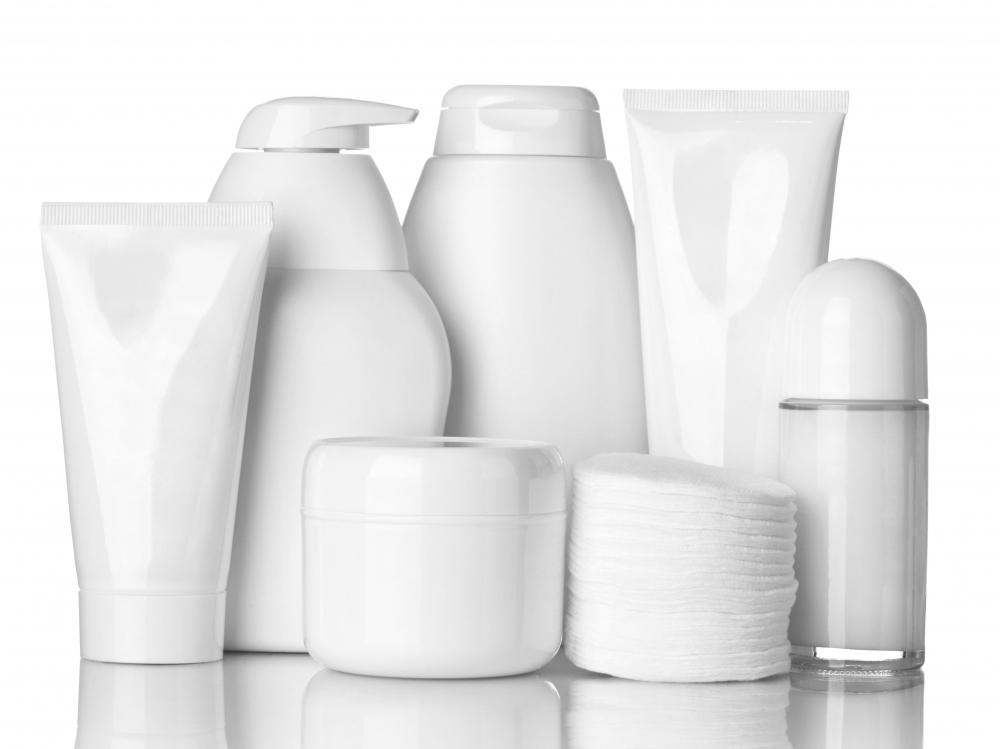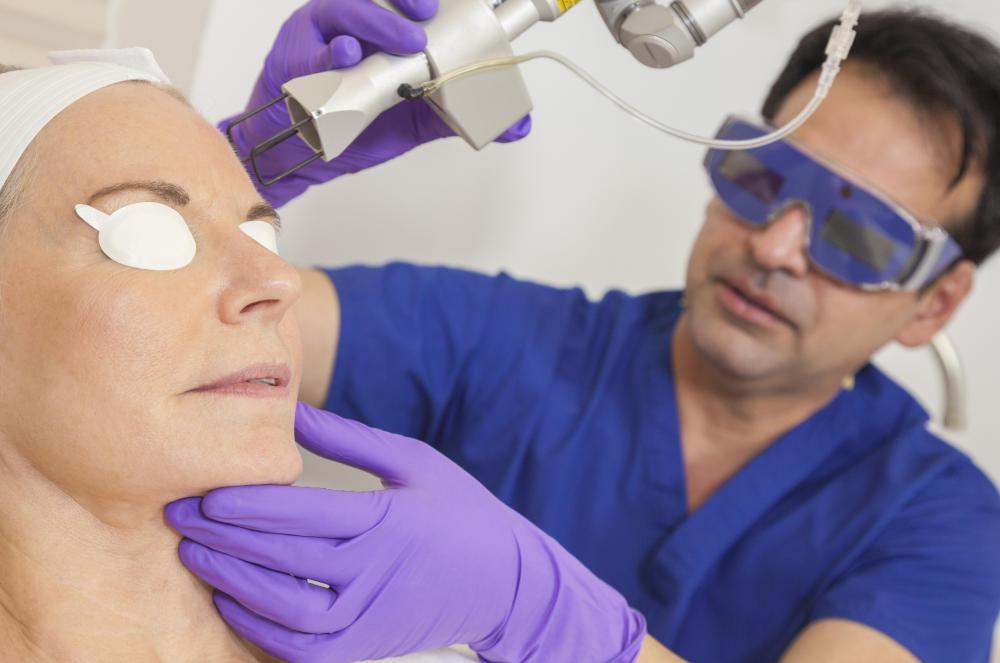At WiseGEEK, we're committed to delivering accurate, trustworthy information. Our expert-authored content is rigorously fact-checked and sourced from credible authorities. Discover how we uphold the highest standards in providing you with reliable knowledge.
What Is a Medical Aesthetician?
A medical aesthetician provides cosmetic help to people who suffer from medical conditions that affect appearance. An aesthetician usually has a qualification from a cosmetology or beauty school. This training generally focuses on cosmetic problems caused by medical issues. He or she may require a license from a regulatory body to practice. Skin care is the primary area a medical aesthetician concentrates on.
There are two main paths to becoming a medical aesthetician. A prospective student who wishes to concentrate on being an aesthetician can undertake a specific course. Alternatively, someone with a nursing qualification can undertake the course and use the training on the job. Some countries may require that the course by formally certified, and the graduate must apply for licensing.

Many different medical issues can affect appearance. These medical conditions range from the life threatening to the simply cosmetic. A medical aesthetician has training in clinical skin care and knowledge of how the illnesses and the necessary medications affect the patient's looks.
He or she also teaches affected people about the products that can help alleviate the cosmetic problem. The aesthetician demonstrates to the patient the correct way to apply the products. He or she uses traditional cosmetics, like foundation and eyebrow pencils, along with specialist skin care products and techniques.

For example, a person undergoing chemotherapy can lose eyebrow and eyelash hair, and the aesthetician can advise on how best to disguise this if desired. Radiation patients may suffer skin problems, and the aesthetician can help alleviate and conceal these issues. A victim of burns may appreciate advice on how to camouflage them. He or she can also be taught how to use products to improve the condition of the burn or scarred skin.

The clinical skin care skills of a medical aesthetician are also important in dermatological conditions and procedures. The aesthetician can provide care to someone who suffers from a disfiguring illness or to someone who is undergoing a procedure that may temporarily affect the skin. A medical aesthetician may also find work in a cosmetic health clinic. There, he or she may perform certain cosmetic procedures, such as exfoliation, as part of the job.
Medical aestheticians work closely with patients, so common workplaces include hospitals, dermatology clinics, and cosmetic surgery clinics. Apart from the practical cosmetic advice, an aesthetician can also help boost a patient's confidence. He or she can provide a relaxing experience that reduces the stress caused by the condition.
AS FEATURED ON:
AS FEATURED ON:













Discuss this Article
Post your comments